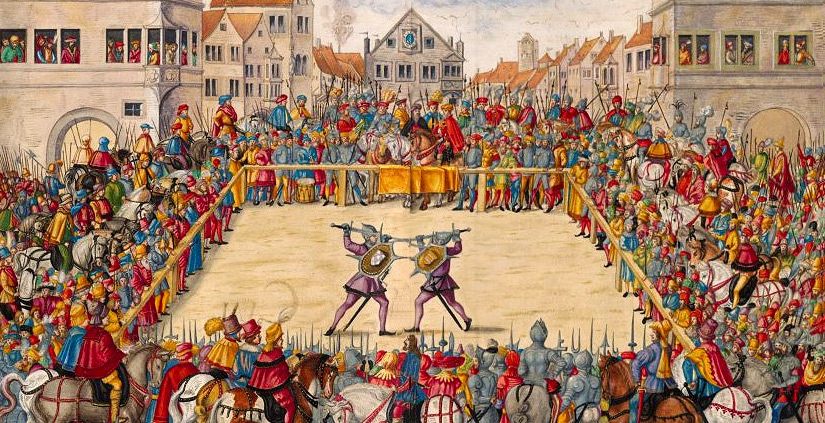
A Pig and a Locust Get Into Serious Trouble With the Law: On Justice in Medieval Europe
Curiously trial by jury was voluntary in medieval England. However, if you did refuse to stand trial, the authorities would crush you between two heavy stones until you either acquiesced or died. In despotic feudal kingdoms “voluntary” was often about as voluntary as Janice from work’s wedding invitation, whom ironically you also wish you could crush between two heavy stones. More serious crimes such as murder, assault and treason were dealt with in the king’s court. If you ended up here and were found guilty, you could be sure of severe punishment. Murderers were hanged or beheaded. Those convicted of treason were hung, drawn and quartered.
So you don’t lose sleep over it, I should explain that being ‘hanged’ stipulated until dead, whereas to be “hung” meant you would be let down before death. As in “I hanged my cat; now it’s dead” compared to “I hung my cat on the wall, then fed it dinner.” However, being hung was usually far worse than a quick hanging, because the executioner would have a delightful basket of torture lined up for you. Starting with the next step, being “drawn.”
Up until the mid-thirteenth century, you would be fortunate if you were to be tried by a jury of your peers in the king’s court.

















/cdn.vox-cdn.com/uploads/chorus_asset/file/25385324/vpavic_20240407_Untitled_Job_11415.jpg)





/cdn.vox-cdn.com/uploads/chorus_asset/file/24801728/Screenshot_2023_07_21_at_1.45.12_PM.jpeg)